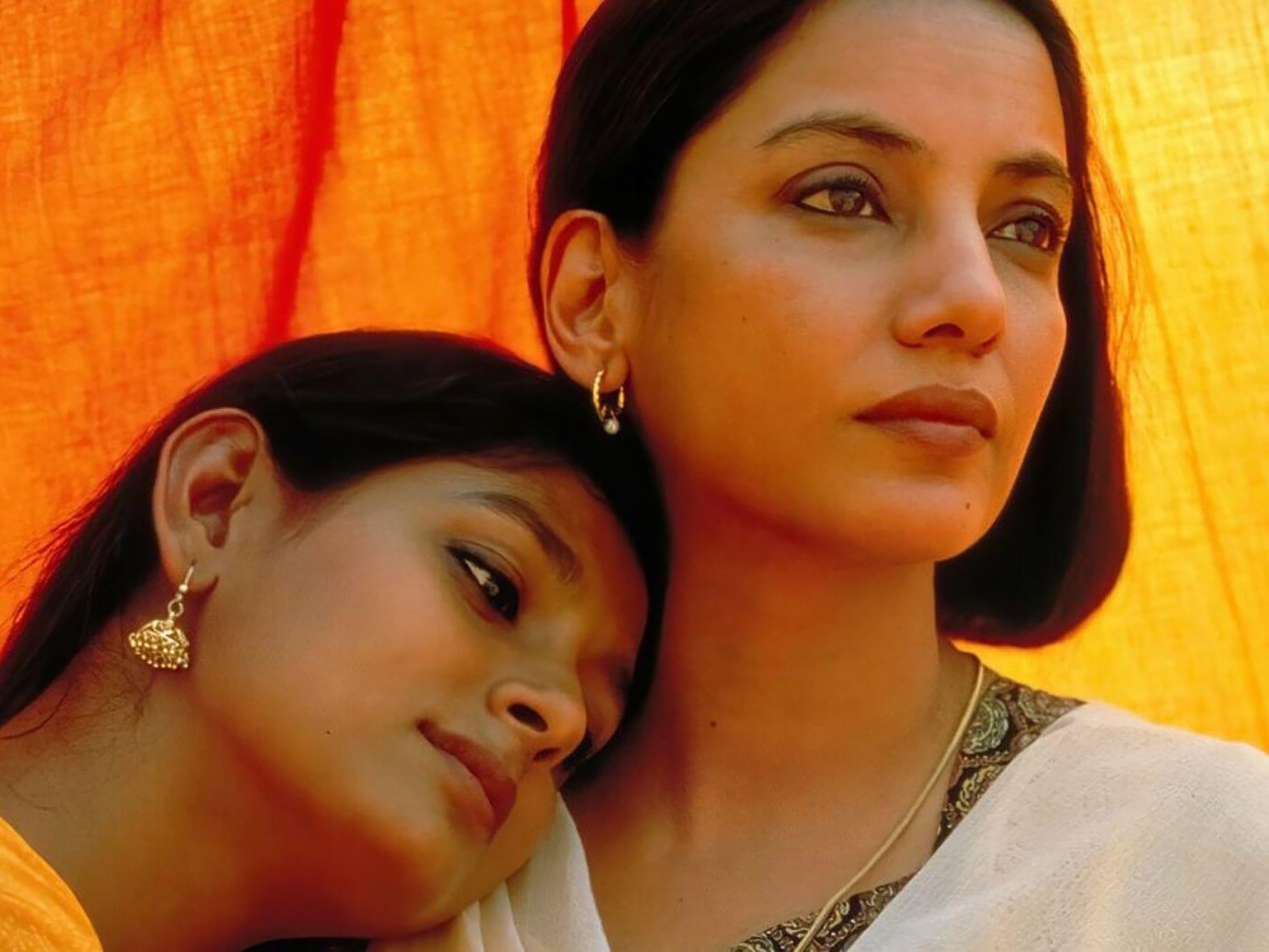
- Film
“Fire”: India’s First Mainstream Lesbian Film
On November 13, 1998, a film opened in India and played to almost full houses for about three weeks. On December 1, some 200 women belonging to a right-wing Hindu fundamentalist political party, the Shiv Sena, stormed a matinee screening of the film in Mumbai, vandalizing the theater and screaming slogans, shutting down the film. Over the next few days, screenings were similarly disrupted in Delhi, Surat and Pune by stick-wielding men who scared away audiences. Exhibitors all over the country started shutting down theaters in response. It turned out that the riots had political support – Mumbai’s Culture Minister and Chief Minister had approved them. Most of the protestors had not seen the film, but that didn’t stop them from vandalization of theaters and threats against the audiences, manipulated by the politicians who thrive on culture wars to serve their own power grabs.
The film was Fire, director Deepa Mehta’s first in a trilogy, followed by Earth and Water. What set off protesters was the subject matter – the film was the first mainstream one to portray lesbian love. It had been passed by India’s censor board without a single cut.
The Shiv Sena put out a statement explaining their fury, saying, “If women’s physical needs get fulfilled through lesbian acts, the institution of marriage will collapse, reproduction of human beings will stop.”
Politicians forced the movie back to the censor board. The head of the board was former actress Asha Parekh, known as Ms. Scissorhands for her ruthless cutting of scenes she took exception to. (It was this board that had just cut the James Bond kiss in Spectre to half its length.)
A counter-movement arose led by director Mehta, film actor Dilip Kumar, director Mahesh Bhatt, screenwriter Javed Akhtar (husband of Shabana Azmi, one of the leads in Fire), and playwright Vijay Tendulkar who filed a petition with the Supreme Court asking for a directive to restore “the rule of law and the Constitution before the situation slips into complete anarchy” and demanding that the film be allowed to screen without harassment.
Kumar was subjected to protests outside his house when about a hundred thugs from the Shiv Sena showed up in their underwear outside his house shouting slogans, saying that they were undressed because that was the only language Kumar would understand. There were demands that Azmi, then a member of the Rajya Sabha, the upper house of the Indian Parliament, resign from her seat.
The censor board passed the film again without cuts.
The story is set in a middle-class joint family in Delhi comprising two brothers, their parents, and their wives. The older son Ashok (Kulbhushan Kharbanda) has stopped sleeping with his wife Radha (Azmi) as she is unable to have children. He plays self-control games like sleeping next to her without touching her, having committed himself to celibacy. The younger brother Jatin (Javed Jaffrey) brings home a new bride Sita (Nandita Das) whom he has been pressured to marry but doesn’t give up his Chinese girlfriend. The two neglected women make a connection and eventually fall in love. When Ashok finds out about the affair, he screams that it is a “sin in the eyes of god and man.” The mother-in-law, unable to speak because of a stroke, spits in Radha’s face.
Fire is a symbol of purity and is invoked throughout the film through references to the goddess Sita walking unscathed through fire.
Mehta has always maintained that the film is not about lesbianism. “Fire is a film about loneliness,” she told India Today. “It is a film about the hypocrisy of our society today. It is a film about how women don’t have choices in a patriarchal set-up.”
And indeed, the film portrays the women fasting so their husbands may be blessed, left to take care of the stricken mother-in-law with no help from her sons, subservient to their rules and trapped in their lives. That they make a stand for their freedom by unshackling themselves from expectations and norms is what invoked the ire of the protestors wound up by politicians, much as politicians are winding up the so-called moral majority with culture wars in the US two decades later.
It was only in 2018 that India’s British colonial-era law Section 377 which criminalized homosexuality was overturned. Still, most gay men and especially women, are still in the closet as the social stigma is still prevalent, especially in rural areas.
Fire brought out gay activists in Mumbai the night after the first riots for a candlelight vigil outside a cinema, holding placards proclaiming their sexuality and support for the film. Mehta was present at the protest. Others came to support freedom of speech. The audience at a cinema in Calcutta stood up to rioters and insisted their screening go forward. Protestors also marched to the home of then-Home Minister L. K. Advani in Delhi demanding action to protect the movie and audiences.
Once the initial furor subsided, the film’s screenings continued without incident.
The film was well received by critics, both in India and overseas, as a groundbreaking and explosive film, though some Indian critics thought it reduced the patriarchal system in India to merely one that wielded sexual control over women, oversimplifying the entire spectrum of subjugation that oppressed women.
Fire opened at the Toronto International Film Festival in 1996, two years before it was released in India, and received worldwide distribution. It won 14 international film awards.

